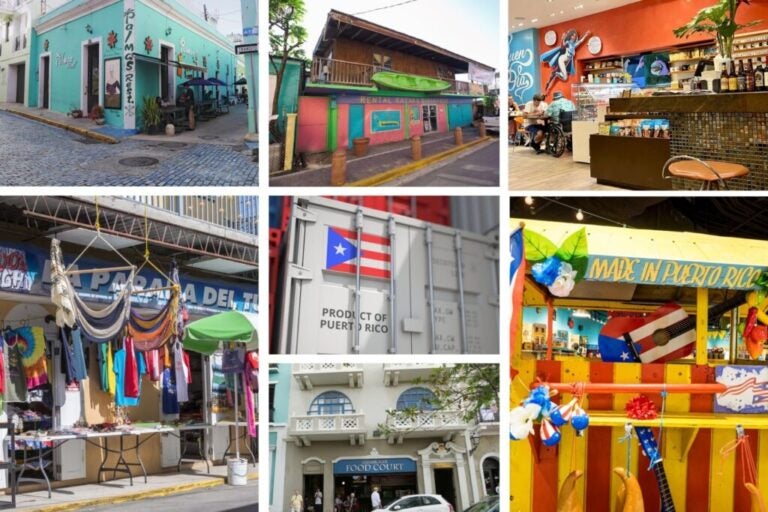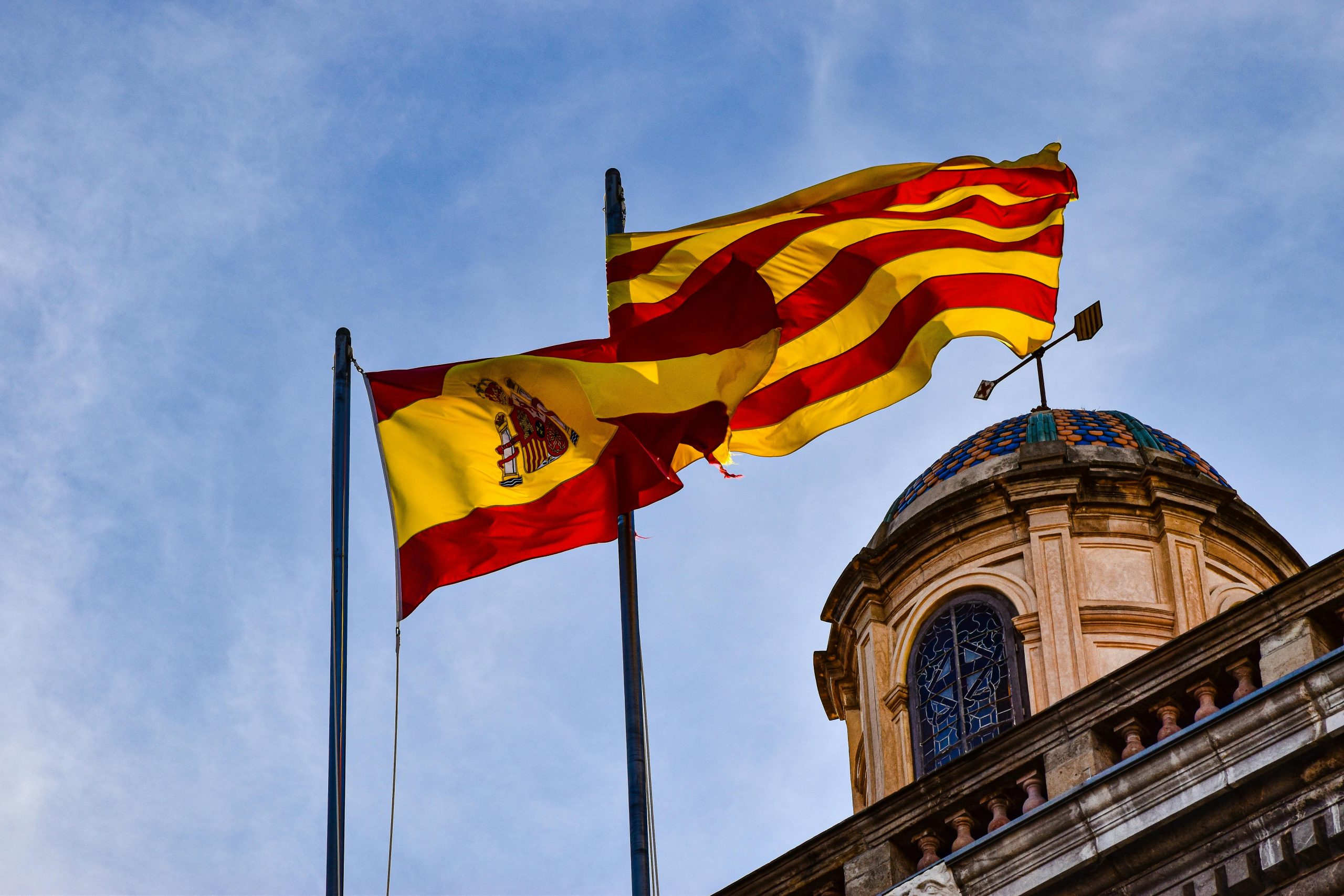Taxes in Puerto Rico: Which should I pay?
Thinking of moving to this tropical island to live and work? Here’s what you need to know about the essential taxes you’ll need to pay in Puerto Rico.
You’re probably familiar with this small Caribbean island known for its tropical beaches and colourful colonial-style buildings, but have you ever wondered about the taxes in Puerto Rico? As an unincorporated territory of the United States, this country has its own tax system that differs quite a bit from the US system, with both local and federal rates. It can be complex for a foreigner looking to live and work on this island, invest in property, study, move their business, etc.
It’s important to know your tax obligations as an individual and a business. That’s why, here at Holafly, we’ve researched the most relevant taxes in this country to explain them to you throughout this article. We’ll look at the updated rates for 2025 with practical examples and also explore the tax benefits you can apply for based on your personal or business profile. Let’s get started!
Taxes for individuals in Puerto Rico
The taxes in Puerto Rico for individuals who reside in the country, such as employees, freelancers, digital nomads, students, or retirees, are based on income, sales and use, property, social security, and motor vehicles. Staying up to date on these obligations ensures fiscal peace of mind and access to the services provided by the government to its residents.
1. Individual income tax
This income tax applies to individuals residing in Puerto Rico who earn income from local or international sources, in some cases. It has a progressive rate ranging from 0% to 33%, depending on the income level.
Additionally, the first $9,000 (€8,300) of income is exempt, while income over $61,500 (€56,800) is subject to the maximum rate. For example, a resident with an income of $50,000 (€46,200) will pay the income tax as follows:
- 0% rate: On the first $9,000 (€8,300) = $0 (€0).
- 7% rate: On the next $17,000 (€15,700) = $1,190 (€1,100).
- 14% rate: On the next $24,000 (€22,200) = $3,360 (€3,110).
- Total: $4,550 (€4,210) in income tax.
2. Sales and use tax (IVU)
Another type of tax in Puerto Rico is the sales and use tax (IVU), which is equivalent to VAT in other countries. This tax is generated on most goods and services purchased by residents, who pay an extra percentage added to the price of the product. The rates are as follows:
- Standard rate: 11.5%, divided into 10.5% for the central government and 1% for municipalities.
- Exemptions: For unprocessed foods.
- Example: If you make a $100 (€92.50) purchase at a restaurant, the IVU of 11.5% will be added = $11.50 (€10.65), with a final price of $111.50 (€103.15).
3. Property Tax
Individuals who purchase property in the country, such as homes, garages, commercial premises, or land, are required to declare the property tax. The taxable base is calculated based on the property’s cadastral value, which is usually lower than the market value. The applicable rates are as follows:
- Rates between 6% and 10%: Depending on the municipal jurisdiction and property type.
- Example: A home with a cadastral value of $150,000 (€138,700) and a 7% rate will pay an annual property tax of $10,500 (€9,700).
4. Social security and Medicare contributions
The taxes in Puerto Rico for workers include contributions that employees must make to social security and Medicare. This is a programme for people over 65 years old to ensure they have medical insurance coverage. The contributions are made in the summary of the payroll and are as follows:
- 6.2% rate: For social security payments.
- 1.45% rate: For covering the Medicare programme.
- Example: An employee with an annual salary of $30,000 (€27,700) will pay 6.2% to social security ($1,860 (€1,720)), 1.45% to Medicare ($435 (€400)), with a total of $2,295 (€2,120).
5. Motor vehicle use tax, marbete
This island also has taxes on motor vehicles registered in Puerto Rico. This tax is known as marbete and its cost depends on the type of vehicle, its weight, and its age, with rates ranging from $35–300 (€32–278). For example, a standard five-year-old car may pay a $150 (€139) annual marbete.

Taxes for businesses in Puerto Rico
Are you thinking about moving your business to this country? First, it’s important to know the taxes in Puerto Rico designed for businesses or legal entities and decide if their tax system is beneficial for you.
Many US or Latin American entrepreneurs frequently travel to the island to manage their businesses there. If this is your case, we recommend the monthly subscription plans from Holafly that you can choose from 25GB up to unlimited data. This way, you’ll have access to a global eSIM from $49.90 (€46.20), which you can use in any country without needing to constantly switch cards.
Important: If you are a frequent traveler and want to stay connected without worrying about expensive roaming or looking for a new SIM at every destination, Holafly’s subscription plans are for you. With a single eSIM, enjoy internet in more than 170 countries for a fixed price and no surprises on your bill. Travel without limits and connect easily and securely! 🚀🌍

Now it’s time to explain to you what taxes apply on this tropical island. While the government offers competitive rates compared to other countries, the combination of local elements and some aspects of the US federal framework makes it complex, but let’s try to simplify them below.
1. Corporate Income Tax
The corporate income taxes in Puerto Rico have both a flat and a progressive rate, with the percentage varying depending on the annual profits that the company makes within the country. Small businesses with income below $500,000 (€462,000) can benefit from lower rates. Check out the rate you would need to declare:
- Base rate: 18.5% on the company’s net income.
- Progressive rate: Can go up to 37.5% depending on the total income.
- Example: A company with a net income of $1,000,000 (€924,000) will pay 18.5% on the first $500,000 (€462,000) = $92,500 (€85,400), then 37.5% on the next $500,000 (€462,000) = $187,500 (€173,200), for a total of $280,000 (€258,600) corporate income tax.
2. Municipal contribution on gross income (municipal license tax)
Any business located in Puerto Rico must contribute to its municipality with a percentage of its gross annual income and pay what is known as patente municipal. It is mandatory, but some small businesses or those engaged in specific activities may be exempt. Here’s how it works:
- Rates: Range from 0.2% to 0.5%, depending on the municipality and the business activity.
- Example: A business in San Juan with gross income of $1,000,000 (€924,000) and a rate of 0.5% will pay $5,000 (€4,620) per year in municipal license tax.
3. Commercial property tax
Properties acquired by legal entities or businesses for commercial activities, such as offices, premises, warehouses, or land, are also subject to taxes in Puerto Rico. The rate is calculated based on the cadastral value of the property, its location, and the use of the property:
- Rates: Between 6% and 10%.
- Example: A commercial building with a cadastral value of $300,000 (€277,000) and an average rate of 8% will pay $24,000 (€22,200) annually in property tax.
4. Consumption and use tax (IVU)
As we discussed earlier under individuals, this tax applies to the final consumer. In this case, businesses act as tax collectors for this tax and must report it monthly to the Puerto Rico Treasury Department.
Remember that the standard rate is 11.5%, and this percentage is added to the price of products or services on the invoices issued. For example: If a business sells products for $10,000 (€9,240) in a month, it must report $1,150 (€1,060) in IVU to the tax system.

Tax benefits in Puerto Rico
Despite the complexity of taxes in Puerto Rico, the government enforces accessible rates for its population. Additionally, to attract foreign investment, encourage job creation, and position the island as a global business hub, several tax benefits have been implemented, such as the famous Act 60 Incentives Law.
Many US-based companies or companies from other Latin American countries decide to open their business on this island due to the physical proximity and to reduce their tax burden without leaving the US financial system. However, there has been some debate about its impact on the local economy and its role in socio-economic inequalities. Here’s a summary of the main tax benefits:
| Tax benefits (Act 60) | Details |
|---|---|
| Incentives for service exports | Service-exporting companies can pay a reduced rate of 4% on net income. |
| Real estate exemptions | Partial exemption from property taxes for the first five years of business operations. |
| Dividend tax exemptions | For individuals who become bona fide residents, dividend income may be completely exempt. |
| Economic development zones | Companies operating in areas like Vieques, Culebra, or Ponce can receive additional tax credits and reduced tax rates. |
| Incentives for creative industries, manufacturing, and technology | Tax credits for job creation, investment in infrastructure, or research and development. In addition to a fixed 4% corporate income tax rate. |
| Incentives for renewable energy | Exemptions and tax credits for projects related to clean energy production. |
Tax benefits in Puerto Rico.
Frequently asked questions about Taxes in Puerto Rico
Residents of Puerto Rico are subject to income tax with a progressive rate of up to 33%, the sales and use tax (IVU) with a fixed rate of 11.5% on goods and services purchases, and property tax.
Companies in this country pay corporate income tax with a base rate of 18.5% plus a progressive surcharge that can go up to 37.5%, the gross income tax or municipal license (0.2%-0.5%) and the commercial property tax (6%-10%). They are also required to charge the IVU on goods and services sales.
Act 60 in this country allows businesses that export services to pay a fixed rate of 4% on net income. It also exempts 100% of taxes on dividends for shareholders who are residents of the island. Additionally, it offers tax incentives for businesses in strategic sectors such as technology, manufacturing, and renewable energy.
Residents do not pay federal taxes on income earned in the island, unless they work for the federal government or have other sources of income in the US. However, they are required to pay local taxes in Puerto Rico.
The sectors of service export, technology, advanced manufacturing, biotechnology, and renewable energy production have various significant incentives, including tax credits and the application of reduced corporate tax rates under Act 60.
Being a bona fide resident in Puerto Rico means that you meet certain legal criteria, such as being present on the island for at least 183 days a year, demonstrating a real connection to the country, having a property as a residence, and a job, among other factors. This shows that Puerto Rico is where you spend most of your time, and you can apply for tax benefits.





 Language
Language 


















 No results found
No results found







